|
Saints Peter and Paul are the co-patrons of our Cathedral in Indianapolis. At times, I’m curious about how two of the most significant apostles feel about sharing a feast day instead of having their own day. We get a glimpse of how these two strong personalities clashed in Galatians 2 as they wholeheartedly strove to work for the Kingdom in the best way they each knew how. Four years ago, I wrote a book from the perspective of a single marriage counselor called Single Truth: You Are More Than Your Relationship Status. In the book, I quoted St. Paul’s 1st letter to the Corinthians: “I should like you to be free of anxieties. An unmarried man is anxious about the things of the Lord, how he may please the Lord. But a married man is anxious about the things of the world, how he may please his wife, and he is divided.” Paul goes on to explain that singleness allows you to adhere to the Lord without distraction. In the Gospel of Mark (1:29-31), we hear of Jesus entering into Peter’s house and “raising” his mother-in-law from a grave illness: “On leaving the synagogue Jesus entered the house of Simon and Andrew with James and John. Simon’s mother-in-law lay sick with a fever. They immediately told him about her. He approached, grasped her hand, and helped her up. Then the fever left her and she waited on them.” Since Peter had a mother-in-law, it is safe to assume he was married. Since this is the only place in Scripture where his marriage is mentioned, it has been a treat to see how The Chosen TV Series has used creative license to imagine what it was like for Peter to juggle full-time ministry with his home life. Honoring Peter and Paul side-by-side reminds us that we are not defined by our relationship status. Whether we are single, married, or consecrated religious, we have a purpose in the Kingdom. Peter could not have fulfilled Paul’s role and Paul could not have fulfilled Peter’s. In each of our own stories, we can think that God will condemn us by our past actions and relationships. The testimonies of Peter and Paul reveal how God chooses us because of our stories – weaknesses and strengths included – not despite them. I have a special fondness for 2 Timothy 4:7 because my college fellowship group was named “Four:7” after this verse: “I am already being poured out like a libation, and the time of my departure is at hand. I have competed well; I have finished the race; I have kept the faith.” I love that this verse was chosen on this feast of Sts. Peter and Paul because in my book I talk about how marriage is an assist and not the goal; our relationship status helps us to pour ourselves out as a gift. The National Catholic Singles Conference highlights Gaudium et Spes 24 because whatever season of life we are in, we “cannot fully find [ourselves] except through a sincere gift of [ourselves].” Whether or not we have a helpmate in holy matrimony, we are not created to be alone and need others to help us fight the good the fight, to finish the race, and to keep the faith. My fellow singles, you are made for community. Please don’t isolate yourself. My dear friends who are couples, you are made for community. Please don’t isolate yourself or think that your marriage is the ultimate goal in life. The Chosen television series depicts a Christ-centered marriage so beautifully in a scene with Simon and his wife Eden. Simon comes home to Eden to tell her that he just met their long-awaited Messiah and was asked to follow Him. She begins to cry and he responds with concern about making her upset. She says, “No, how can I be upset? Come here. This is the man I married… of course He chose you. Someone finally sees in you what I have always seen in you. You’re more than a fisherman. How can I feel abandoned? I feel saved.” Marriage should point us to Jesus, because Jesus is the ultimate goal! So, Peter and Paul, though their earthly vocations were different, they were both called to go on mission for the Lord. You can find a clip from The Chosen television series below. Reflection: In the Gospel today, Jesus asks the question, “who do you say that I am?” I want to turn that question back on you as well. “Who do you say that you are?” Do you define yourself by your relationship status or by Jesus’ love for you?
0 Comments
It seems that each day we check the news to discover that another politician, producer, actor, or celebrity figure is being exposed for scandal or abuse. Many of those who have for years been hailed as the main influencers of public opinion, policy, and taste have in a stunningly short span of time lost support or credibility. Many of those who were on top of the world have been, we could say, deflated and dethroned. I have been pondering this lately as the Church prepares to celebrate the Solemnity of the Ascension of the Lord. Each Sunday in the Nicene Creed, we profess Christ’s ascension, “He ascended into heaven and is seated at the right hand of the Father.” The ascension is recounted at the beginning of the Acts of the Apostles (Acts 1:6-12). Theologically, we do not envision Jesus ascending like a balloon into the sky, but a king ascending a throne. The Feast of the Ascension celebrates the exaltation and enthronement of Jesus as King and Messiah at the right hand of God the Father in heaven. As many of us may be scientifically literate and democratically-minded citizens of the twenty-first century, we may think all this talk of thrones and kings and heaven may seem like it belongs to a world that has long passed away. But if our recent headlines have proven anything, what has not passed away is the perennial pursuit of power and our tendency to underestimate our willingness to use it in potentially harmful and self-aggrandizing ways. Power in and of itself is not an evil thing, and watching people fall publicly is not a cause for celebration. I think instead the present reality invites us to pause and reflect on—in light of God’s reality—the pursuit and exercise of power both in society and in our own lives. In truth, power is not something that belongs only to the powerful. Power exists across any human relationship: husband and wife, parent and child, teacher and student, boss and employee, and the list is endless. We are influenced vertically by our superiors and horizontally by our peers. Ideally, we work together to achieve the common good and common goals by sharing and exercising power in the right doses and ways. But I think if we’re honest, we all have our own way of being out of balance, tipping the scales. So, what does this all have to do with Jesus, who we call the All-Powerful One? As exalted King and Messiah, Jesus overthrows the love of power with the power of love. The Ascension is not a power grab that Jesus will use to control people and outcomes. Rather, we hear Jesus tell the disciples that once he has taken his seat on God’s throne, “you will receive power when the holy Spirit comes upon you, and you will be my witnesses in Jerusalem, throughout Judea and Samaria, and to the ends of the earth” (Acts 1:8). As disciples, we are not separated from Christ by a glass ceiling. Yet as disciples, we have to be careful where and how we exercise this power given to us in the name of Jesus. One of the images in Scripture of the Holy Spirit is fire. It is a great metaphor for power. Our stewardship of God’s power can bring light and warmth, yet it can also burn if used irresponsibly. I suspect today that much of what compromises our evangelizing message of Jesus’s kingship stems from the ways Christians have abused earthly power in the name of God. The Gospel and St. Paul preach a radically different alternative: the conviction that our human exercise of power more fully manifests Christ when it is surrendered than when it is wielded. So, I propose instead: What happens when we dare to profess Jesus enthroned and exalted, to receive the power of his Holy Spirit, and then lay it down in the service of the Gospel? Question for Reflection: How is Christ’s example of kingship and power different from what we see in the world? One of the things I love about Catholicism is that we celebrate the mysteries of our faith in a physical way. Going to Mass, kneeling, standing, singing, receiving the Eucharist, hearing and proclaiming the Word of God, experiencing community after Mass or at parish events. Some of our liturgical feast days even emphasize the physical contact between us and the Divine. Think of reverencing the wood of the Cross on Good Friday or participating in a Eucharistic procession on Corpus Christi. Our faith is incarnational, and our bodies are important conduits for worship. That’s part of the reason the last several months have been so difficult for so many. These physical elements of worship have been—largely—unavailable to us because of COVID-19 and the practice of physical and social distancing. Most of us have also been physically disconnected from our communities of faith, friends, and family. We’ve missed important events like birthdays, retirement parties, and even funerals. The emotional, spiritual, and psychological effects of this separation are very real and very serious. And it’s been clear from the outset of this pandemic that the Church must take action to alleviate the impact of isolation, despair, and loneliness caused by this pandemic. But who will lead the charge? I find myself asking, what is the Church going to do about it? How will we get through this? And then I realize, the Spirit is calling me. And, friends, the Spirit is calling you too. We’re not being called to wait around while someone else figures it out. God is calling us to figure this out together. We must remember that we are the Church on earth, and we are being invited by the Spirit to cooperate with God’s grace to take action and serve others, right now. We can’t simply wait for someone else to help. Those of us who are baptized are called to be missionary disciples and, ultimately, saints. And this call comes with a personal responsibility to recognize that all our lives are interwoven as branches grafted onto the Vine, as various parts of one Body (1 Corinthians 12). We are connected to one another through our baptism into Christ. Paul says, “The body is not a single part, but many.” And because of this interconnectedness, when one part suffers, the whole body suffers. So, we’ve got to do something about that, because we’re called to be “doers”. We are all suffering in some way during this pandemic. It’s not even possible to downplay that. And we all feel one another’s burdens. We especially feel our personal stresses and anxieties, day in and day out. I believe one of the answers to this anxiety and suffering is the beautiful work of spiritual accompaniment. The call to spiritual accompaniment is incarnational and based on the love of Christ. Spiritual accompaniment urges us out of our own interior world and presses us to walk with our brother or sister in whatever situation they might find themselves. Pope Benedict XVI says that God’s love for humanity is so strong that “it turns God against himself, his love against his justice” (Deus Caritas Est, 10). How, then, can we demonstrate a reflection of this great, personal love to one another if we can’t be physically present to one another? I believe we must be creative and find ways to communicate our companionship to one another in meaningful ways. We can allow ourselves to be challenged by these questions while we reflect on this topic: Do I have the ability to be present to my suffering neighbor in any way today? Do I have the capacity to do charitable spiritual accompaniment during this pandemic? I believe one effective way to spiritually accompany others as we remain physically distant is to ask challenging questions of others and engage in honest conversation. Though this may seem simple, “faith sharing” is a powerful way to be witnesses of God’s presence, and we all need to be reminded of God’s presence these days. I think there are two simple, penetrating questions that can start fantastic spiritual conversations that open our eyes to the great works of God. They are:
The answers to both of these questions reveal our hearts, our spiritual yearnings, our joys, and our sorrows; the answers to both of these questions lead us to recognize God’s presence among us, either by contemplating where we’ve seen God or petitioning His aid through prayer. I want to challenge you to invite a friend or someone you’re close with to consider these questions and then to hear their answers. Perhaps you’ll be surprised at the way the Spirit guides the conversation. I believe that through this simple practice of spiritual accompaniment, we will grow closer with one another, though distance or politics or ideologies may keep us apart. Loving and holy conversation is one way to begin healing the wounds caused over these last several months, and it is one way to accompany one another on the road as we travel strange, new paths together. To learn more about spiritual accompaniment, please click here. For more resources to deepen your faith during COVID-19, please click here.
I watched her curly little head bounce away from me further down the hiking path and around a bend, out of my sight. I knew her older brothers would slow down so she could keep up with them, taking her under their wings. In the midst of a global pandemic, the woods were a safe space, open and free from the danger that seems to lurk everywhere these days. Nonetheless, my heart rate picked up along with my pace. What if a stranger was on the path? What if she fell and got hurt? I couldn’t see the path ahead, and I was afraid. I hurried along, my anxiety increasing as my steps forward failed to lead me to a view of my children. My thoughts turned dark while the woods around me became bright. Trapped in my own head, I failed to notice the sun breaking through, filtering light through the treetops. Until—there! The sunshine reflecting off of my little girl’s sequin covered sneakers allowed me to catch a glimpse of my babies. “Red light!” I yelled, in our family shorthand for “stop-moving-your-body-immediately.” The birds scattered, startled. My children froze in place as they waited for me to catch up with them. As I knew they would be, the boys were watching closely over their little sister. Taking her by the hand, they coached her through the mud and over the fallen branches. “See, Mama? Pretty!” my curly little girl exclaimed, joyfully depositing semi-crushed wildflowers into my hands. After rubbing her nose against mine, she joined her brothers on a moss-covered log, not registering my fear for even a moment. Exhaling a sigh of relief, I praised God in joy for great big brothers, my safe little girl, and a Father who is Light, illuminating the way. In this season of uncertainty, I find myself living that moment on the hiking path time and again: rushing forward, afraid, unable to see what is ahead. My days are filled with research and passionate conversation about schooling, and what the right choice for our family will be this fall. We deliberate over each barbecue invitation and mourn the loss of birthday celebrations that will never come to life. Parenting in a season where change is the only constant is overwhelming. I’m living that moment on the hiking path again: where I could not see, there was light. Though I was afraid, the Father was before me, protecting my little ones. So now, instead of remaining trapped by my thoughts, I am pursuing His power and protection. I am practicing seeking the light. In his letter to the Colossians, St. Paul reminds us that we can live in joy even in the midst of hardship, and he shows us how: “[We are] strengthened with every power, in accord with His glorious might, for all endurance and patience, with joy giving thanks to the Father who has made you fit to share in the inheritance of the saints in light. He delivered us from the power of darkness and transferred us to the kingdom[...]”(Colossians 1:11-12). Joy is a pursuit. By God’s great mercy, we are called out of the darkness and into the light. We are invited to share in the inheritance of the saints, if only we can pursue His power and glorious might instead of depending upon our own. When left to myself, I abandon joy for the hopelessness and despair that seems to permeate the world during this pandemic. However, when I pursue the heart of Christ, I am promised endurance and patience. I am equipped to face the reality of a sick and broken world and to remain unbroken by its weight. In His power alone, joy still abounds. Joy is a practice. Turning hands full of crushed wildflowers to praise comes with intentionality. So: let us train ourselves to joy. When we feel the dark closing in on us, we are called to joyfully give thanks to the Father and to seek His fingerprints that so graciously mark our lives—to acknowledge His many gifts. When the trees block our view, let us enjoy the sunshine filtering through their branches. When the path is rocky and unsure, let us acknowledge that He walks alongside us, and before us. When we suffer through sickness, hardship, and isolation, let us hope in God who has overcome suffering once and for all. This is joy. Grace-filled moments of contentment, happiness, peace, safety, and hope that we open our eyes to experience, even in the midst of the dark. Where happiness is fleeting and circumstantial, joy is ours to keep no matter the circumstance. Along this path I will stumble and fall. Joy will evade me as I am burdened by fear and uncertainty. But I will allow the Lord to raise me up, seeking the joy He offers me despite my skinned knees. Like my curly girl, I choose to trust that I am not alone. I choose wildflowers and light. I chase joy.
6/30/2020 Living the Mission of Jesus: Overcoming Racism by Entering In, Listening, and AccompanyingRead NowThe din of breakfast time in a house full of little ones required that I practically yell to my husband to be heard over requests for more milk: “I just feel so sad for our country. I feel sad that so many people are suffering. I’m sad about how devastated God must feel.” Before he could respond, my sweet, sensitive 5-year-old hugged my legs. “It’s okay to feel sad, Mom. But, why are you sad for our country?” And so our dialogue began. I gently told him about the injustices being faced by our Black brothers and sisters. I reminded him that God made each of us in His image, and that we are each deeply loved by Jesus. I reminded him that racism is a sin, and that Jesus conquered our sins by His death on the Cross. We love Jesus and honor His sacrifice by turning away from sin. And then I told him that we have work to do: as Catholics, we get to be like Jesus by fighting against racism. As believers, we are called to make the world more loving and just. So together, we enter this mission of Christ. Our baptism calls us and sends us out, equipping us to live as members of the Body of Christ. The Catechism calls us “members of each other, (CCC no. 1267)” and as such, we have a responsibility to live that way. Using the life and love of Jesus as the guiding principal of our faith, we are invited to acknowledge the suffering of those around us. Saint Paul writes in his letter to the Corinthians, “If one part suffers, every part suffers with it; if one part is honored, every part rejoices with it. Now this is the body of Christ” (1 Corinthians 12:26). This is unity as the Body of Christ: a people not positioned as ‘left’ or ‘right,’ for only the unborn or for only Black lives, but positioned at the foot of the Cross. Our Church, informed by the Gospels, calls us together to this work to uphold the dignity of the person, letting Jesus show us the way. Jesus was moved with compassion. At the death of Lazarus, he wept. At the woman’s desperation for healing, he allowed himself to be touched by her. He entered into the woman at the well’s loneliness and shame and met her with mercy. Jesus showed up heart first, revealing how we might accompany each other. As a white woman, I cannot know the suffering of the Black community. I can, however, emulate Jesus by allowing myself to hear and see hurt and be moved deeply by it. Instead of rationalizing, self-aggrandizing, or refusing to acknowledge the pain of another’s story, I open my eyes to see the brokenhearted—even when it challenges me, even when it hurts. Like Jesus, I weep for the loss of Breonna Taylor, George Floyd, Ahmaud Arbery, Rayshard Brooks, and so many others. I allow myself to feel and enter into the pain. I lean in until it makes me want to do something. Jesus stood with the vulnerable. God made flesh dwelled among us and was moved with compassion for his people. Seeing the suffering of Martha and Mary, he raised Lazarus from the dead. At the ailing and fear of the bleeding woman, he extended healing and peace. He saw the shame of the woman at the well and revealed himself as God to her, declaring her worthy of His life-giving water. In these examples and countless others, Jesus reveals himself as unapologetically for and with the least of these. As Catholics, we are called to this mission. In response to the just anger of our Black brothers and sisters, we stand in solidarity with all who experience the sin and effects of racism . Moved by this pain, we cry out to our Father for healing and peace. Using our voices, votes, and dollars, we stand for and with the Black communities and all affected by the sin of racism, declaring the value of each life and the dignity of each person. I am tempted to avoid this work. Showing up heart first the way Jesus did requires a vulnerability and humility I often lack. I become disproportionately concerned about being comfortable and being right. I am tempted to keep my head down, refusing to be moved and challenged by new voices and stories. Yet, I am called to look up. When I pridefully insulate myself from the pain of a hurting person or community by my refusal to enter in, openhearted, I deny the dignity of their personhood by not validating their experience. By guarding my hardened heart, I fail my baptismal calling. Jesus concerned himself more with loving the low in spirit than the repercussions of caring. He entered in, listened, and loved each person—especially the marginalized. So today I seek to live like Jesus. I choose to sit in sorrow for the pain of my Black brothers and sisters. I lift up my voice in prayer, confident that God sees and cares deeply about justice, unity, and life. I choose to look to the mission of Jesus to remember my own. Join me.
To become a person of prayer, we need to make every effort to live always in the presence of God. If we so live, there is every reason to believe that our life can gradually become one of ongoing prayer. St. Paul urges Christians to “Pray without ceasing.” The Holy Spirit makes this possible, and such a manner of praying becomes a way of life. If the presence of God is acknowledged through a constant spirit of inner prayer, we should find ourselves ever more prepared to enter into the more structured forms of prayer that are part of the Christian life. The Holy Spirit urges us to pray every moment. Faith is crucial to our prayer life. I think of the Gospel in which the father of the possessed boy says, “I do believe; help my unbelief.” We should enter into every moment of prayer recognizing our need for deepening our faith and acknowledging that God is Who He is and we are not God. We can pray, “Lord help remove my lack of trust, my lack of faith. If, Lord, you still find an unresolved cause for discouragement within me, some doubt, take it away and instill in me unquestioning faith.” Each day, my prayer life consists of four forms of prayer: The Divine Office, personal prayers and devotions, a daily rosary, and meditative prayer. I pray to the Sacred Heart of Jesus, the Holy Spirit, and Mary Immaculate by way of a prayer that truly reflects my devotion to each. My purpose for entering into such prayer is not only to give praise and honor to the person to whom I am praying at the moment, but also to use this time to pray both for people who have asked me to pray for them and also for oly SD people whom I know need prayer. Of course, I pray for myself and my own needs as well. God wants us to take a very personal approach to prayer; in other words, He wants us to be ourselves when we speak to Him. Meditative prayer asks us to do our best to select an appropriate time and place so that we might move out of the hustle and bustle of our daily routine and give the moment exclusively to God. It invites us to sit quietly in a comfortable position that still enables us to be alert. Choose an appropriate time for meditative prayer by scheduling it when you find yourself ready for a break and for spending meaningful time with God free from distractions. Then, clear your mind of thoughts running through it haphazardly. After all, we are taking a moment to discover Christ who dwells within us. In order to show our sincerity in making this effort, we must first come into conscious contact with and recognize the person we are at the moment. There are no masks allowed in the presence of God. Christ wants to encounter us as we truly are. Meditative prayer takes practice. We must acquire a taste for it if we are to decide to continue to use it to deepen our relationship with Christ. We will be willing to enter into meditative prayer regularly and consistently if we arrive at the conclusion that it Is truly a worthwhile method to help us grow in our relationship with Christ who calls us “friend.” I have found it helpful for my prayer life to establish a set time and place for prayer according to my living conditions and personal daily schedule. I have also allowed myself to be flexible if these change or if I come to discover a place and/or time more suitable for contemplative prayer. Try to give at least fifteen minutes to this prayer experience. If you choose to continue with this approach to prayer, you will eventually come to discover that you are better able to freely enter into this prayer. It is the Holy Spirit who teaches us how to pray, accompanies us throughout the prayer experience, and also makes it clear to us when it is time to conclude. I personally find a half hour of quiet prayer to be a meaningful experience. However, be open to praying for shorter or longer amounts of time depending on your conversation with the Lord. Be aware of your mood when entering into prayer. Again, we are entering into the Presence of the Lord just as we are. It is important to acknowledge our mood and disposition, knowing God see us and accepts us as we are. Furthermore, do not try to rate any meditative experience. It is prayer that we are talking about and not a moment of self- evaluation. God always accepts our effort as a gift as long as it is offered with sincerity. To begin meditation, I attempt to get in touch with what is going on in my life, placing myself in the presence of God. From there I select a word or phrase from the daily Gospel reading. I tend to read the Gospel passage a couple of times and look to find myself in the reading. It might be that something is going on in my life— a challenge, a problem, a confusing situation, a memory from the past. If so, I try to bring this to the Lord in connection with the Gospel passage. Perhaps at such moments, I will deliberately choose a passage from Scripture that speaks to me concerning the situation at hand. How will Jesus speak to me in and through the chosen text? If you wish to meditate on the entire Gospel scene, one way to do this is to put yourself into the scene and focus on what Jesus is doing and saying and how this speaks to your life. It is of course true that our power of concentration can be rather limited. We face the challenge of distractions in meditative prayer as we do in every experience of prayer. Once we realize the presence of a distractive thought, we need to let it go and get back to focusing upon what we hope will lead us to a deepened sense of the presence of Jesus within. Meditative prayer is our invitation to the Lord to speak to our heart as He would: “Speak, Lord; your servant is listening.“ This element of listening is essential to a proper meditative experience. Otherwise, such prayer can become the prayer of the Pharisee in the temple with the publican, what Jesus called a prayer about oneself to oneself. By sharing some of my prayer practices above, I hope to have helped guide you deeper into an understanding of the life of prayer that makes every effort to live in the presence of God. Our prayer life is a constant journey of growth in which we seek to spend time with and grow closer to the Lord, already present within us. May we grow this year in our ability to pray without ceasing, and in so doing, embrace prayer as a way of life. As a child, I was perplexed by the three in one nature of the Trinity. It was a mystery that was hard to fathom, but so much about my day to day Catholic faith was steeped in the Trinity that I simply believed and accepted it without question. Everything, from grace before meals, the beginning and ending of our prayers and devotions, the opening of the liturgy of the Mass, and the reception of the sacraments of Eucharist and Reconciliation, began “In the name of the Father, and of the Son and of the Holy Spirit.” In my mind as a child, I considered the Trinity the divine family who created and loved me unconditionally. I felt a strong sense of security under the umbrella of the love and protection of the Almighty, the Savior, and the Helper – as I learned to refer to them. Now in adulthood, I have a deeper perspective on the Holy Trinity – my ‘divine family’ –as being the basis for Christian living. I have been fortunate to grow up in a loving family with a father who lived his life reflecting the divine love of the Holy Trinity. Being nurtured in a very tangible way through the example of my dad’s faith helped me understand and appreciate the gift of family. As a young teen, I remember my father’s admonition from Exodus: “Honor your father and your mother, so that you may live long in the land your God is giving you.” It wasn’t a suggestion; it was a command that came with a promise. My dad had a quiet countenance, but when he spoke, I listened! He appealed to my sense of what was right and encouraged me to be good. Just as God the Father instructed His people and led them on the right path, even amidst great suffering, my dad led our family with a confidence that being good and doing what is right would bring us to eternity with our divine family. Throughout several millennia, God has watched over His creation with providential love. Through the ministry, death, and Resurrection of Jesus, He has shown us mercy very personally. The indwelling of the Holy Spirit in each of us guides us on the daily path of truth. What is so magnificent is how God ordered the human family to live out His wise and benevolent plan. In the Holy Trinity we are given the totality of all we need to live a holy Christian life. I join St. Paul in praying: “This then is what I pray, kneeling before the Father, from whom every fatherhood in heaven or on earth, takes its name. In the abundance of his glory may he, through his Spirit, enable you to grow firm in power with regard to your inner self so that Christ may live in your hearts through faith, and then, planted in love, with all God’s holy people you will have the strength to grasp the breadth and the length, the height and the depth, so that knowing the love of Christ, which is beyond knowledge, you may be filled with the utter fullness of God.” (Ephesians 3:14-19) In Familiaris Consortio, John Paul II shares how earthly fathers “reveal and relive on earth the very Fatherhood of God.” Through my dad’s prayerful and faithful commitment to his role as husband and father, he led us to walk with God. His daily choices to pray and seek wisdom, to act charitably, and to put the welfare of my mom and his kids foremost taught me what the love of the Trinity looks like. By embracing his vocation as protector, provider, and teacher, my father made God’s love manifest in our domestic family. The older I get, the more I treasure this rich heritage I’ve been nourished in! Pope Saint John Paul II also wrote that “a man is called upon to ensure the harmonious and united development of all the members of the family… by exercising generous responsibility for the life conceived under the heart of the mother, by a more solicitous commitment to education, by work which is never a cause of division in the family but promotes its unity and stability, and by means of the witness he gives of an adult Christian life which effectively introduces the children into the living experience of Christ and the church.” This type of earthly fatherhood is the embodiment of the divine being of God the Father in the most Holy Trinity. As the national day to celebrate fathers follows shortly after the Solemnity of the Holy Trinity, it seems fitting to reflect with gratitude on the gift of our divine Father and our human fathers—as well as the rich heritage we may possess through them. My dad lived a full ninety-four years and made it his mission to evangelize us to his last breath. He never ceased to serve his children and was a witness to the importance of a personal relationship with the Trinity. He shared with us his prayers to his ‘daddy’ in heaven and to his favorite saints. He encouraged his grandchildren and great grandchildren to talk to God throughout the day and beg Him for help. He exhibited an abiding hope in gaining something good from every experience, good or terrible. His favorite expression to everyone he encountered was “everything is beautiful!” His peaceful, positive countenance is what everyone remembers of him. This countenance comes from his life lived closely under the protection of God our Father, his devotion to the Sacred heart of Jesus, and his willing surrender to the wisdom of the Holy Spirit. My earthly father was a gift who made the love of God real for me; I will be forever grateful. “A clean heart create for me, O God, and a steadfast spirit renew within me.” -Psalm 51 This year I find myself anticipating Lent eagerly. I relished the joy and hope of the Christmas season, but when it came to an end, I entered into Ordinary Time and found myself slushing through the seemingly never-ending gloom of winter. You know the season—the small chunk of the liturgical calendar that sometimes feels like an awkward waiting game between Christmas and Easter. Right now, I feel spiritually complacent—mediocre. My prayer life feels as drab as the ongoing winter. I am distracted and bogged down by cares of the world. I don’t have a consistent routine. But now Lent is upon us. And I’m ready to change things. For Ash Wednesday’s readings tomorrow, we immediately hear the powerful words of the prophet Joel: “Return to me with your whole heart, with fasting, and weeping, and mourning; rend your hearts, not your garments and return to the Lord your God.” This is followed in the second reading with, “Behold, now is a very acceptable time; behold, now is the day of salvation.” There is an urgency in the Scriptures on this day. The tone is serious and I can almost hear St. Paul’s breathlessness while he exhorts the Corinthian church, “We implore you, be reconciled to God.” They ring out to each of us today and serve as a wake-up call to Christians: do not wait until tomorrow to pursue holiness, but start now, this very minute. The readings begin to awaken me from my spiritual slumber. However, words alone do not suffice in spiritual conversion. They require action—a response. Rather than causing me panic, the readings continue by offering concrete solutions. Christ himself instructs us, telling us to give alms, pray, and fast in tomorrow’s Gospel: “Take care not to perform righteous deeds in order that people may see them… When you give alms, do not blow a trumpet before you.” (almsgiving) “When you pray, go to your inner room, close the door, and pray to your Father in secret.” (prayer) “When you fast, do not look gloomy…anoint your head and wash your face, so that you may not appear to be fasting.” (fasting) These instructions are God’s response for how to “return to the Lord with your whole heart” this season. We are not left with lofty, unattainable goals, but with action. This is what Lent is all about: responding to God’s grace and promptings in our lives to pursue holiness with greater attention and effort through prayer, fasting, and almsgiving. Only two times a year does the Church ask us to prepare at so committed a rate: Advent and Lent. The reason for this is because Advent and Lent prepare us for the two most important theological moments of Christianity: the Incarnation of God made flesh in the birth of Jesus Christ and the Resurrection of the Savior after his crucifixion and death. In order to even begin to grasp, understand, and celebrate the enormity of these events, we need to be spiritually awake. And the best way to wake up and prepare for Easter is through prayer, fasting, and almsgiving, which the Church invites us to do during the Lenten season. And our spiritual fathers remind us that “now is a very acceptable time…Now is the day of salvation” (emphasis added). Currently in my spiritual life, I feel a bit like the rich fool in the Gospel. He reached a level of material comfort that led him to build larger barns to store his wealth, only to have his life demanded of him that very night. While I don’t resonate with his material wealth, I feel satiated as he did by the things of the world. As I enter into the Lenten season, I find it hard to concentrate in prayer because I’m thinking of material goods or worldly concerns. It was not the wealth of the man itself that was wrong or evil, but his complacency. He looked at the “many good things” he owned and decided to rest, eat, drink, and be merry. Christ then goes on to say he was rich in treasure for himself but not “rich in what matters to God.” What matters to God is a relationship with each of us (prayer), a life lived in service to others (almsgiving), and occasional self-sacrifice (fasting) that increases our discipline, unites our sufferings to Christ’s on the cross, and increases our reliance on God himself. So now, as I find myself at the beginning of this Lenten season, I want to emerge from my spiritual complacency and respond to the Lord’s call to return to him with my whole heart. Will you join me? For more resources to accompany you through your Lenten journey, please click here. It is fitting that as I write this blog in anticipation for National Vocation Awareness Week, the liturgical calendar has us moving through Paul’s letter to the Romans. In this letter, we find Paul emphasizing that we are now entering into a ‘new exodus.’ Just as Israel was liberated from Egyptian slavery, we are now liberated from the slavery of sin. The sacraments of Baptism and the Eucharist are the means by which Catholic Christian believers are joined to the new Exodus. Baptism is prefigured by the Israelites’ passage through the Red Sea, and the Eucharist is prefigured by the manna and the water from the rock in the desert. As we know well, the story does not end at our baptism. Rather, it is there that the story begins. Israel, having escaped from Egyptian slavery, quickly discovered that serving the Lord was even more demanding on the will than serving Pharaoh. In order to reach the Promised Land, the people of Israel had to take a path through a wilderness of trials and temptations. This path required a valiant conquest of all the obstacles of sin that stood in their way. In fact, the difficulty of the journey had some yearning for the days when they were slaves in Egypt. As children of the ‘new exodus’, our vocation in life is to travel through the wilderness of human life. Our exodus differs from the old in some ways, though. Our proclamation of the freedom found in Christ occurs while we travel. Our baptismal vocation calls us to ongoing sanctification, but it also calls us to witness this great exodus from sin and the new freedom in and won by Jesus Christ. We often desire the commitment to this ‘new exodus’ after seeing the commitment of others. This is a point that Fr. Luigi Giussani makes in his book titled, Is it Possible to Live this Way?. Fr. Giussani stresses the necessity of faith by which one encounters Christ indirectly through the witness of another. This witness tugs at our hearts to the point where we have no choice but to respond. Witnesses are therefore crucial to our discovery of this vocation - a vocation to partake in the new exodus. In my own life, my first example of such witnesses began with my parents. They not only gave me life, but they witnessed the faith by making the home a domestic church. Their marriage provided a template for me in my own vocation. They helped me see that the expression of freedom from the tyranny of selfishness comes through a spousal love. This spousal love is not exclusively expressed through the sacrament of matrimony, but it is also expressed through the sacrament of holy orders. As a diocesan priest, my local church in Harrisburg, particularly St. Francis Xavier in Gettysburg, is in a sense my spouse. I could not have such an understanding were it not for the witness of my parents. In addition, every seminarian and newly ordained priest can think of at least one other priest who first witnessed the presence of Christ to them through their own ministerial priesthood. In my case, I watched and learned first from my childhood pastor in New Hampshire, Fr. Marc Montminy. He was, and continues to be, a witness of Jesus Christ and a faithful spouse of the Church. Other priests who have taken on a similar role in my life are Fr. Frank Donio, S.A.C. (the Director of the Catholic Apostolate Center), priests of the Diocese of Harrisburg, faculty priests at Mount St. Mary’s Seminary, and priests elsewhere. As a priest, I seek (despite shortcomings and failures) to always be attentive to this desire - a desire to reach the promised land of eternal life through this new exodus. This is only possible because I have encountered people who not only accompanied me in discovering this desire, but who also witnessed it. This is, in essence, what it means to be a ‘humana viator’ (a wayfaring pilgrim). This is what it means to be an apostle. This is what it means to imitate Jesus Christ, the apostle of the Father. This is what it means to fulfill our baptismal vocation. During this National Vocation Awareness Week, may we be more attentive to this desire. May we recommit ourselves to this new exodus, which we have already begun through our baptism. May we also maintain and express our gratitude for those who have (and continue to) accompany us as witnesses. For more resources on Accompaniment, please click here. For more resources on Vocational Discernment, please click here. This week is National Vocations Awareness Week. When I tell my vocation story, I usually describe my vocation as a response to the great love that God has shown me throughout my life. I talk about what a joy it has been to fall in love with Christ and to give my whole life to him in a specific way in religious life. And that is absolutely true and beautiful. But if I’m being honest, it’s only part of the story. I am a novice with the Daughters of St. Paul, a congregation of women religious dedicated to evangelization through the media. Shortly before I entered the convent, I was plagued with a series of doubts regarding my vocation. I had discerned that God was calling me to enter religious life, but suddenly the vocation seemed too big for me. One time in particular, I went to my spiritual director deeply concerned that I had misrepresented myself to the sisters. When I looked in the mirror, I saw a normal 21-year-old. I’d watched The Office more times than I’d care to admit, had a newly acquired taste for craft beer, and had only kicked my swearing habit a few months before. As I prepared to move to the convent and begin my formation, I was worried that the sisters might be shocked to find out that I was still pretty far from being holy. “What makes you think that you haven’t been honest with the sisters?” my spiritual director asked me. “Whenever I visit the convent, I find myself acting like a much better person than I actually am. They’re going to find out the truth once they start living with me,” I explained. “Well,” he began chuckling, “Your vocation is the very thing that is going to make you into the best person you can be. That means you’re not there yet. But look, it’s already making you holier!” It can be tempting to think that we need to get our life in order before we respond to God’s call. We want to be perfect before we think that God can work through us. But friends, that day will never come on this side of heaven. And besides, that just isn’t God’s modus operandi. When we look at who God decides to call, it is never the person whom we would choose. Peter denied Jesus three times. Mary Magdalene had seven demons cast out from her. Paul, whom my congregation is named after, literally persecuted Christians. God is not afraid of our weaknesses or our wounds. In fact, it is often the very things that we view as obstacles to his grace that make us into powerful witnesses to his grace! The truth is, I’m not worthy of being called to be a religious sister. But no one is really worthy of this calling. That’s the beauty of a religious vocation and of the Christian life as a whole: it’s not about us and what we can do for God. It’s about God and what he wants to do in us. Every sacrifice that I’ve made in these past three years, every mistake, every time I have had to ask forgiveness or forgiven someone has served to make me into the person God wants me to be. So has every hour of Adoration, every Spirit-filled conversation, and every birthday that we’ve celebrated in community. There are these kinds of moments in every vocation where God uses something that seems strangely normal to bring us ever closer to himself. Vocation is a totally free gift that God has given to us. We could never earn or deserve it. It requires a response, but it begins with the fact that he has first loved us and desires to give us abundant life. That’s the truth about religious vocation— praise God for that. 10/24/2019 The Apostolate of Accompaniment: Creating an Environment of Accompaniment in Our ParishesRead NowWhen people speak about the work of evangelization or accompaniment, they often speak about going out to the margins, “to the highways and the hedgerows” (Luke 14:23,) to bring the “nones” and the unbaptized into the Church. This is, of course, an essential part of Jesus’ final commission to his apostles to baptize and make disciples of all nations (Matthew 28:16-20). But I have to wonder: what’s the state of spiritual health in our own parishes? Are the lay faithful aware that their sacramental experience is an encounter with Christ, and do they care about their brothers and sisters with whom they share Communion? Are the people in our pews accompanied by anyone in their journey of faith or are they trying to live their faith on their own? There are many definitions for spiritual accompaniment, but in the book I co-authored with Colleen Campbell as a resource for the Catholic Apostolate Center, we define spiritual accompaniment as “the apostolate of intentional relationship that is oriented toward a definitive direction of growth in holiness and transformation in the Person of Christ.” In general, accompaniment is “a broad term that refers to a relationship between two or more people who share mutuality and reciprocity in the spiritual life” (The Art of Accompaniment). I believe this “apostolate” of accompaniment is essential to a parish’s spiritual health for three main reasons: First, creating a culture of accompaniment in the parish enables the lay faithful to be who they are called to be by their baptism. In the Rite of Baptism, we receive the Holy Spirit and we are made members of Christ’s Body. As members of the same Body, we have a responsibility to bring the light and love of Christ to one another. As Paul writes in First Corinthians, the various parts of the body must have concern for one another because we need each other (1 Corinthians 12:21-26). When members of the lay faithful take an interest in one another’s faith journeys, encouraging one another on that journey, they are living their Christian vocation as the Church intends. When members of the lay faithful are not concerned for members of their parish community, they become spiritually stunted and begin to believe that faith does not require community in one Body. Second, accompaniment helps a parish to become the best ordinary place of encounter with Christ. The parish is the most likely place where an individual begins his faith journey. Churches that sit on familiar street corners appear as safe havens for those who seek the Lord or some other help. The parish must embrace a culture of accompaniment so that when individuals approach it seeking communion, they are met with a warm and welcoming response instead of sacramental hoops or parish boundary restrictions. Accompaniment challenges parish staff and parishioners to “[respect] the dignity of the human person, and [seek] to increase their freedom to respond to the all-encompassing love of God within their life” (The Art of Accompaniment). Finally, it’s important that we implement a culture of accompaniment in our parishes because one of the goals of accompaniment is liturgical worship, and this can only take place in the parish. Sacramental theology reminds us that the sacraments are how Jesus accompanies and remains with his Church in a physical way (CCC 1088). Accompaniment’s goal is “transformation in the Person of Christ,” and if the lay faithful are serious about accompanying one another, they will encourage one another to seek out liturgical life at the parish, because the sacraments sanctify us, build up the body of Christ, and give worship to the One who Accompanies. For more resources on Accompaniment, please click here. To purchase The Art of Accompaniment, please click here. This coming Sunday’s readings address the issue of wordliness in the many forms it takes and remind us not to get caught up in the world but instead to focus on God. The first reading, from the Book of Ecclesiastes, includes the oft-repeated words, “Vanity of vanities! All things are vanity!” It addresses vanity not only in the prideful sense, but also vanity in the pointless sense: “For what profit comes to man from all the toil and anxiety of heart with which he has labored under the sun?” What good is being anxious and sorrowful, never being able to rest because we worry so much about the things of this world and about things we cannot control? In the second reading, St. Paul admonishes the Colossians thus: “Put to death, then, the parts of you that are earthly: immorality, impurity, passion, evil desire, and the greed that is idolatry.” These are the flip side of the anxiety coin, namely, a sort of hedonism that fights sadness by seeking immediate and often fleeting pleasures—declaring them the highest human good. The problem with these two extremes is that neither acknowledges that mankind was created for something more than this world: both the anxious and hedonistic are so caught up in earthly things that they fail to see beyond the scope of their own lives. St. Paul reminds his Colossian readers to “think of what is above, not of what is on earth.” Similarly, in the Gospel reading, Christ tells a member of the crowd to “take care against all greed, for though one may be rich, one’s life does not consist of possessions.” The Scripture readings could just as easily be addressed to modern-day people living in the developed world. Anxiety, greed, and hedonism abound and creep into our souls. Our lives are a series of wants: “I want that new iPhone,” “I want to follow all the fashion trends,” “I want the biggest slice of cake,” “I want a prestigious education for my children.” We are greedy for praise and for the love of our fellow man. We are anxious about bills to be paid and potential promotions at work. We seek to define ourselves through our professions and our possessions, as though the ideal job or the ideal amount of material goods will bring us peace. In my own struggle against wordliness, I resemble most the anxious man from Ecclesiastes. I worry whether I am setting a good example to my children, how long it will take to afford that home improvement project, whether my family will be misfits, whether anything I do in this life will ever amount to anything. I’ve even had trouble falling asleep because I started envisioning scenarios of the crosses my children will have to bear when they’re grown—which will not be for nearly two decades! Our Christian faith calls us to something so much greater than getting bogged down in the things of this world. Our faith shows us that there is no true peace on earth except through God. Anxiety, greed, hedonism—each in its own way seeks to fill a hole in our hearts that can only be satisfied by the love and mercy of God. When we think about our daily lives and whether we live too much in the world, we can ask ourselves how we want to be remembered after we die. Will we be remembered because of our insatiable need to have all the latest gadgets and to fill our houses with all the best stuff? Will we be remembered as complainers who spent so much time worrying about nightmare scenarios and wishing we had what other people have, never accepting our lot in life or striving to serve God in all things? Or will we be remembered because we embraced the love of God and it imbued us with the grace to live out exemplary lives of heroic virtue? Embracing this alternate worldview, the one that finds its satisfaction in God and heavenly things, will enable us to live in the world while not being of it. It is in this that we find true peace. My grandmother passed today. In her last few days, she told her nine children, “I remain in the will of God. God’s will is love and mercy. What do I have to fear?” In a word, she got it. She got what life was all about: she had a friendship with God that helped her to understand his identity and to recognize death as the vehicle that would bring her eternally to him. The grace with which my grandmother understood her last days is uncommon. Death usually seems to surprise or horrify. We don’t think about it too often in our culture, either because it makes us uncomfortable or we’re often focused on earthly things. As a teenager, I experienced a lot of family deaths in a short period of time. During an incredibly formative period, I attended many funerals, said many prayers, visited several hospitals, and travelled often unexpectedly. Life seemed incredibly uncertain and precarious, and I found myself often asking, “Who’s next?” Death was real, and it seemed to be everywhere. Though I felt like an adult at the time, I was still unable to comprehend the greatness and depth of what was occurring. It is normal for human beings to dislike death. Death is ugly, unnatural, and uncompassionate. It visited my grandparents, aunt, and cousin. It tried to visit my own father. In those teenage years, death and I were at war. It took my relatives and did not ask my permission. As a method of self-preservation, I attempted to turn off my feelings and approached life with a blasé attitude. If it was all going to end, I thought, then what was the point? What was the point of feeling if feelings are heartache and tears? What was the point of getting too close to someone who would ultimately slip away? It was an immature but perhaps understandable reaction for a teenager. And since then, it has taken many years for me to be able to “feel” again and understand death’s role in the spiritual life. If we start researching the saints and their perspective on death, we quickly find a completely different understanding of death than the one the world gives us. “Tomorrow will be a wonderful day” Blessed Solanus Casey said to a fellow priest, prophesying his own death the next morning. He and many of the saints saw death as a friend, a door, a wedding banquet, a bridge welcoming man into reality—eternal life. “Death is no phantom, no horrible specter as presented in pictures,” Therese of Lisieux said. “In the catechism it is stated that death is the separation of soul and body, that is all! Well, I am not afraid of a separation which will unite me to the good God forever.” The saints also understood that life on earth is a pilgrimage, not our final destination. As a girl, Therese of Lisieux found inspiration in the quote: “The world is thy ship and not thy home.” We are pilgrims on a road hopefully leading back to God. Every decision we make leads us either closer to this end or farther from it. I believe mankind has such an aversion to death because we were not created for it. In the beginning, death did not exist. Death was the consequence of sin: separation from God. In order to not leave us in this state of separation permanently, God worked throughout time and intervened in human history in order to bring mankind back to himself in a state even greater than we experienced prior to the Fall. He now invites us to share in his very life—the trinitarian life of love, of complete gift of self—in heaven which “is the ultimate end and fulfillment of the deepest human longings, the state of supreme, definitive happiness” (CCC1023). Because of God’s work throughout salvation history culminating in the Passion, death and Resurrection of his Son, death no longer is the last word. As Paul wrote to the early Church in Corinth: “Death is swallowed up in victory. Where, O death, is your victory? Where, O death, is your sting?” The sting of death is taken away—transfigured. God took the ugliest and most unnatural consequence of sin and transformed it into the passageway that leads us back to him. This is the Christian perspective of death, what the saints understood, but what we have such a hard time truly grasping. We often only see the life taken too soon, the pain and suffering of the dying, the wrinkles, the tubes, the bloodshed. Christ offers us more: resurrection, transfiguration. St. Paul says that if we but understood the eternal, we would willingly suffer on earth—calling tribulation “momentary light affliction.” He says, “We are not discouraged…although our outer self is wasting away, our inner self is being renewed day by day. For this momentary light affliction is producing for us an eternal weight of glory beyond all comparison, as we look not to what is seen but to what is unseen; for what is seen is transitory, but what is unseen is eternal.” 1 Cor 4:16-18 I believe my grandmother, in her final days, understood what St. Paul and the saints did: death was simply the vehicle that would bring her into the loving arms of the Father. She understood God’s identity in two words—love and mercy—and surrendered to this truth in order to live eternally in God’s love. I look to her example and see incredible strength and faith, and I pray, as I visit her tomb in Mexico, that I can have the grace to remain in God’s will and see death as a momentary light affliction producing an eternal weight of glory beyond all comparison. “She competed well; she finished the race; she kept the faith” (cf 2 Tim. 4:7). May we all do the same. Contemporary Western culture seems to promote nothing but pride these days; it insists that only those who are proud, selfish, and disobedient can effect change or succeed in life. But salvation history and the lives of the saints tell us a different story—namely, that pride is the downfall of mankind, and that humility is what ultimately exalts us.
Humility is a difficult virtue to embrace because it is such a quiet one and is often mistaken for what it is not. In his Summa Contra Gentiles, St. Thomas Aquinas describes humility thus: “Truly, the virtue of humility consists in this, that one keep himself within his own limits; he does not stretch himself to what is above him, but he subjects himself to his superior.” Being humble does not mean debasing yourself and refusing to acknowledge that you have any gifts or talents whatsoever—and some would argue that in fact, such an attitude is actually hidden pride! The truly humble man understands that he is not the greatest at anything, and that while he is better at something than others might be, his gift ultimately comes from God and is to be used for the glory of God, not for personal accolades. The prime example of this is the Blessed Virgin Mary. She was a young woman without wealth or powerful connections, and yet her submission to the will of God altered the course of human history and opened the door for the divine Messiah to enter the world He would one day redeem. She did not attempt to argue that she was utterly unworthy of the grace bestowed on her, but rather submitted with her humble fiat, “May it be done unto me according to your word.” The truly humble man knows his own limitations—he submits to the authority not only of God and of the Church, but also to the legitimate authority of the government and the workplace. A humble man does not go looking for opportunities to gain power and prestige. He dies to himself for the sake of others—he harbors no resentment when others’ work is extolled while his goes unnoticed, and he uses those moments of humiliation to draw closer to Christ. The humble man continues to use his gifts even if no one but God is going to see or acknowledge them. And when his gifts and accomplishments are acknowledged by the world, the humble man turns that praise back to God instead of focusing it on himself. The humble man does not need to project an Instagram-perfect image of his life to the rest of the world: he accepts that he is a work in progress, can admit when he is wrong, and can accept criticism with grace. Sometimes true humility seems impossible to achieve. Because we are fallen creatures wrapped up in ourselves, we have to constantly work toward selflessness. One method of doing this is by praying The Litany of Humility. This prayer asks Jesus to deliver us from desires and fears fueled by pride—from the desire of praise, to the fear of being wronged. But the beauty of this litany is that it not only asks that we be freed from our pride, but it also asks for the grace to desire that others may be better than we are, loved more than we are, holier than we are. True humility is not downplaying our own roles, but is setting aside our own desires so that others can rise higher and do more for Christ than we ever could. It’s being the Andrew to someone else’s Peter and the Barnabas to someone else’s Paul—calling forth someone to the good or encouraging their potential, even if means that person becomes greater than ourselves. Matt Maher has his own take on the Litany of Humility in his song “Every Little Prison.” What I like about Maher’s version is that he adapts the prayer to be more recognizable for the modern Christian. Pride takes many forms in this era of Instagram followers, Facebook “likes,” and the 24-hour news cycle—we spend time “wondering if I am relevant and liked” and “wanting to be seen.” Ultimately, humility requires us to turn to God instead of other things and to trust in him, in his mercy and his wisdom, rather than becoming slaves to our fears of being judged, or of not being loved, or of having to let go. By praying for freedom from the prisons created by pride, may we live more confidently in the love of God and in doing his will. For the average modern-day Catholic, one’s familiarity with St. Barnabas probably extends as far as knowing that he was a companion of St. Paul during Paul’s early missionary work. But when I delved deeper into the Acts of the Apostles to learn more about Barnabas, I was surprised to see just how influential he was in the early days of the Church.
He first appears in the Acts of the Apostles 4:36: “Joseph, also named by the apostles Barnabas” sells a piece of his property and donates the money for the Apostles to use. He next appears in Chapter 9, when he takes charge of the newly-converted Paul and introduces him to the twelve Apostles, and later, he brings Paul into the missionary work for the growing, Jewish-and-Gentile-based Christian community at Antioch (in modern-day Turkey). Chapters 13 and 14 could be appropriately nicknamed “The Adventures of Paul & Barnabas,” for they include: an encounter with a false prophet (Acts 13:6-12), having their teachings embraced by Gentiles and just as thoroughly rejected by Jews (Acts 13:44-52), one near-stoning and one nearly-fatal stoning (Acts 14:5-6 and 14:19-20, respectively), and performing a miracle only to be mistaken for incarnations of the Greek gods Zeus and Hermes (Acts 14:8-14). And yet, the Holy Spirit compelled them onward! The next chapters recount more of Sts. Paul and Barnabas’s evangelizing work together and then focus on St. Paul after he and Barnabas went separate ways. Personally, I had never known that St. Barnabas—whom I had often envisioned as a sort of sidekick to St. Paul’s evangelizing heroics during his early years as a missionary—was actually the man indirectly responsible for Paul’s later renown. It can be difficult to believe that someone has truly changed, and even more difficult to advocate publicly for that person before he has had a chance to ‘prove himself’—and yet that is what Barnabas did. Would Paul ever have been accepted as a ‘true’ Christian if the well-regarded Barnabas had not been there to acknowledge Paul publicly and to put him in touch with the Apostles? How long might it have taken Paul to reach the path of the missionary if Barnabas had not sought him out specifically to assist the efforts in Antioch? In our modern, post-Christian society, there are many opportunities for us to be the Barnabas to someone else’s Paul. Perhaps it might mean asking for help from someone with a task that could ignite their zeal for the Lord and nurture their God-given talents. Perhaps we can see the potential for someone else’s faith to deepen and for the great things they could accomplish. Or perhaps the opportunities we encounter are chances to be a witness to the truth—even if that witness brings persecution, falls on deaf ears, or we must move on to other places, as Paul and Barnabas did. As we commemorate the feast of St. Barnabas, let us ask for his intercession in revealing to us how we can most effectively share the Gospel today and invite others into a life of meaningful discipleship. Question for Reflection: Has anyone ever advocated for you or have you ever been an advocate on someone’s behalf? What was this experience like? experience like? |
Details
Archives
July 2024
Categories
All
|
About |
Media |
© COPYRIGHT 2024 | ALL RIGHTS RESERVED

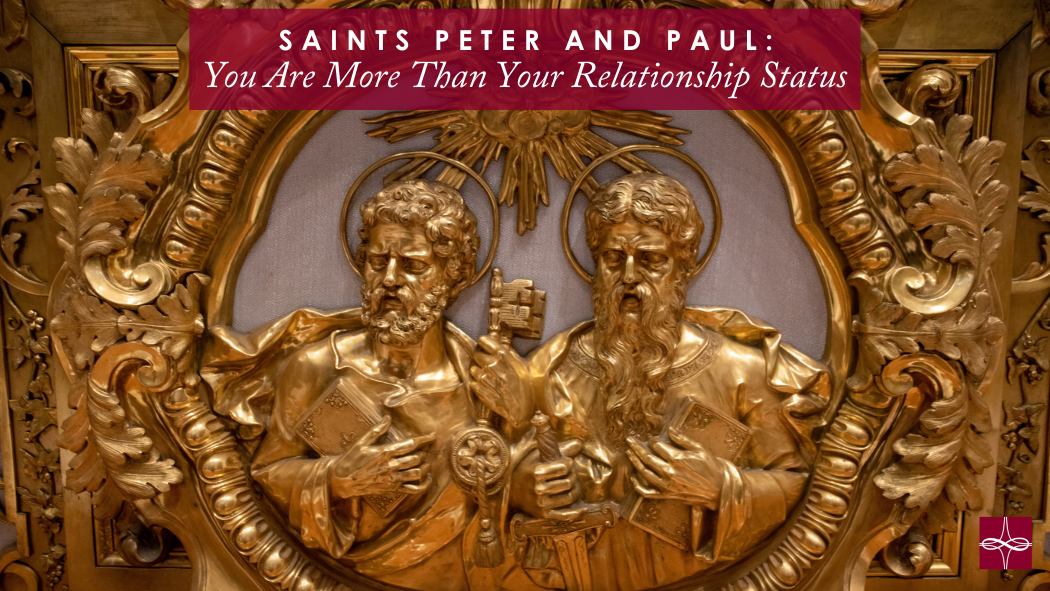
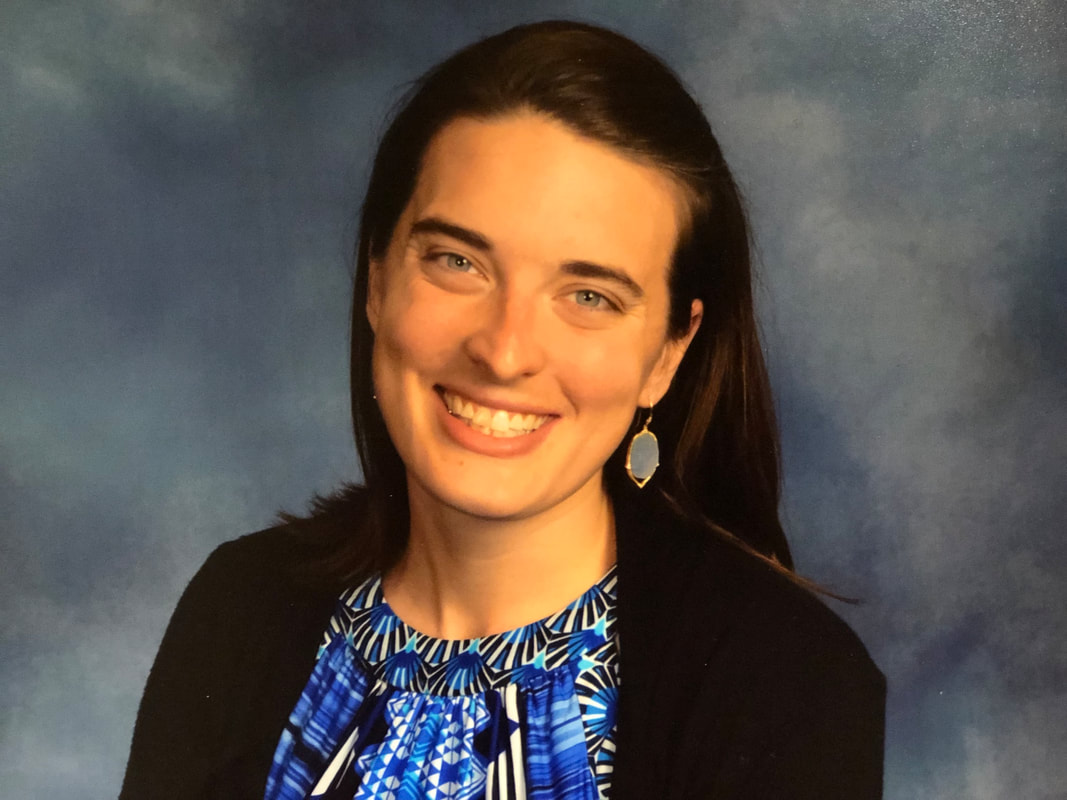
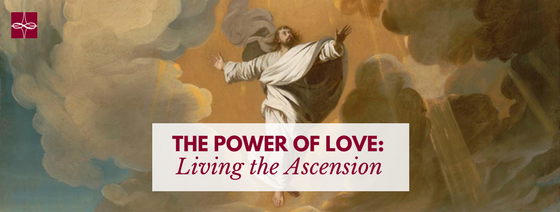

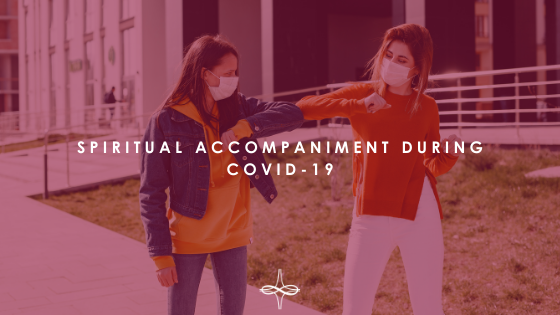
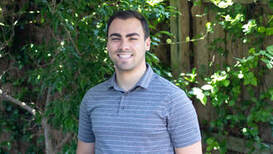


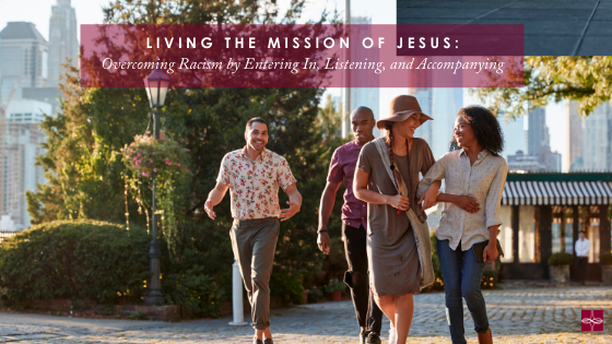

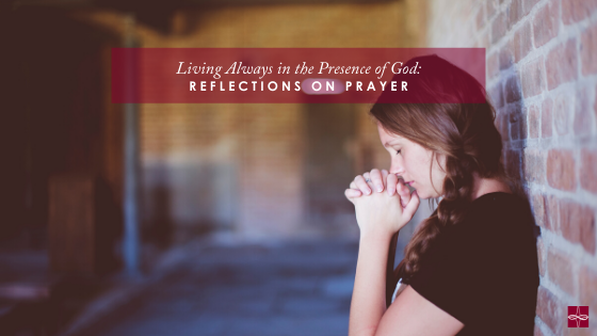
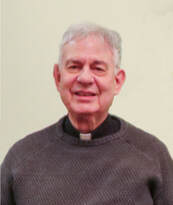
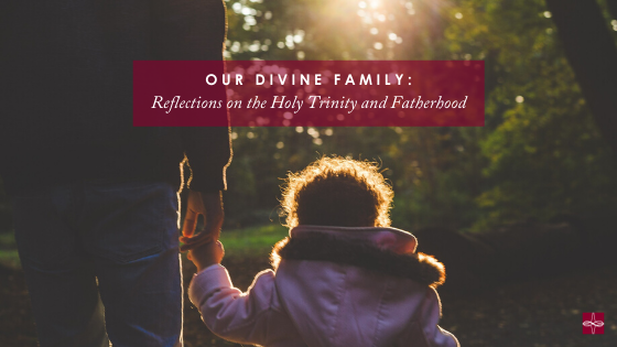

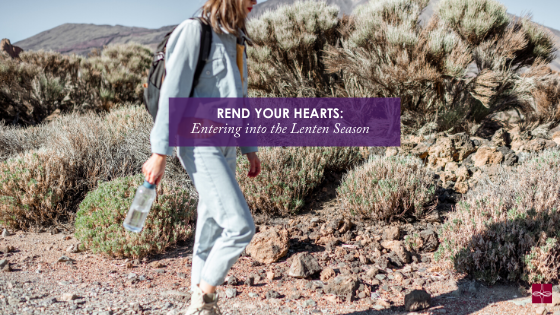

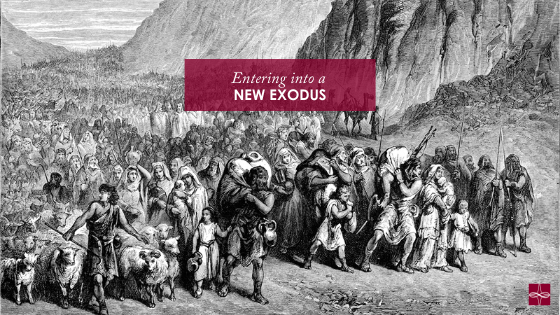
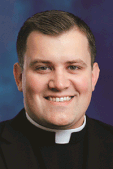
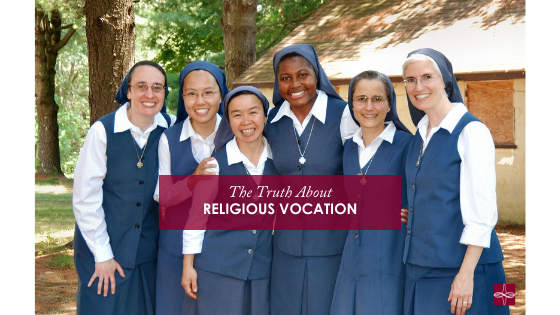

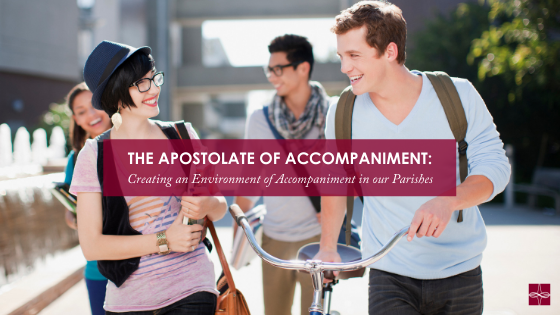

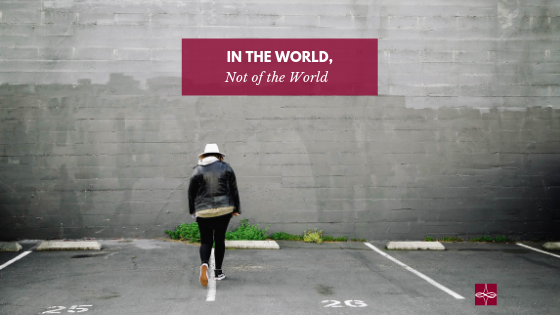

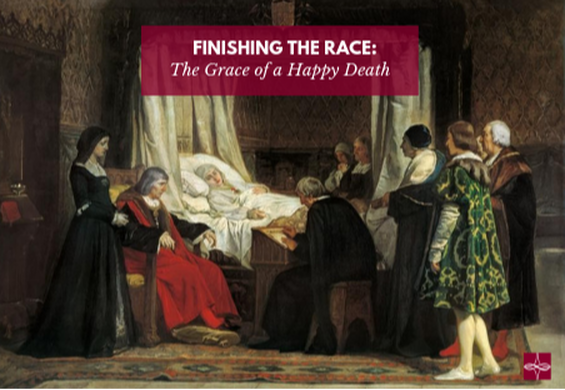

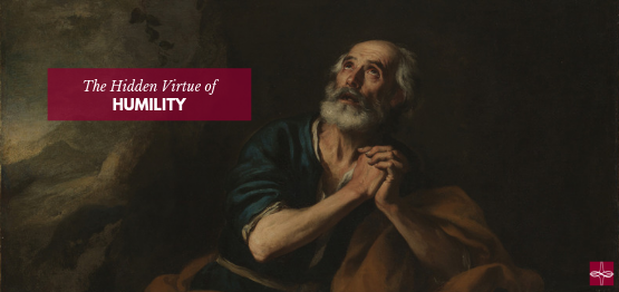



 RSS Feed
RSS Feed